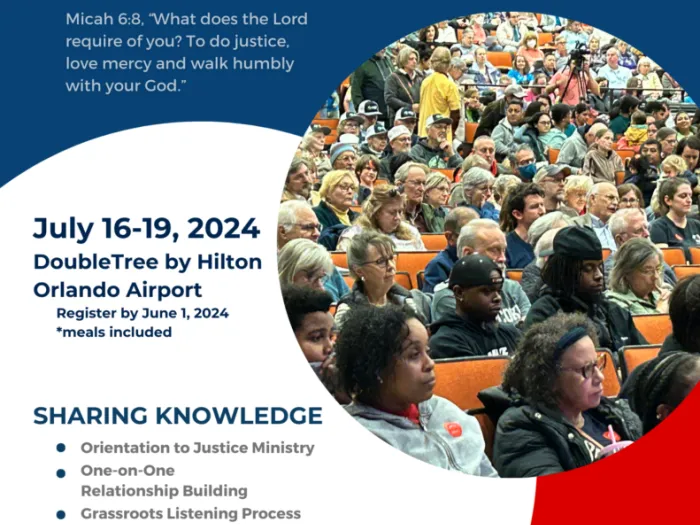February 12, 2018
In Support of the Energy Innovation and Carbon Dividend Act of 2019 (HR 763)
In June 2018, the 223rd General Assembly of the Presbyterian Church (U.S.A.) “expressed profound concern about the destructive effects of climate change on all God’s creation, including a disproportionate impact on those living in poverty and in the least developed countries, the elderly and children, and those least responsible for the emissions of greenhouse gases.” The Assembly went on to express its conviction in a “moral mandate for humanity to shift to a sustainable energy regime” and urged the implementation of “national and international policies that create a consistent, rational, and escalating price for emissions of CO2 and other greenhouse gases, which will reduce consumption and support investment in sustainable alternative energy sources.”
On Jan. 24, 2019, Representatives Ted Deutch (FL-22), Francis Rooney (FL-19), Charlie Crist (FL-13), Judy Chu (CA-27), Anna Eshoo (CA-18), Scott Peters (CA-52), and Dan Lipinski (IL-03) introduced H.R. 763, the Energy Innovation and Carbon Dividend Act of 2019 (EICDA). This carbon pricing bill is an exciting advancement of Congressional efforts to control U.S. carbon emissions and reduce greenhouse gases. The Presbyterian Church (U.S.A.) applauds this bipartisan effort to care for a suffering creation and supports passage of this bill.
To the public good, the EICDA outlines an economic mechanism that will curb U.S. carbon emissions by removing the financial burden of emitting greenhouse gases from society at-large and placing it on fossil fuel companies, while holding harmless most U.S. residents (citizens and lawful residents). By placing the burden of the cost of climate pollution on large energy companies, the EICDA will impose financial incentives on those actors to change their business models and reduce greenhouse gas emissions that cause global climate change. By taking effect soon after enactment and escalating the carbon fees quickly, this bill will require the market to take corrective action for choices that, for over a century, have been reckless and damaging to the environment. The consequent increase in prices is then expected to change consumers’ long-term patterns of consumption of fossil-based energy. Proponents of the bill project that it will reduce U.S. emissions by at least 40 percent over 12 years and create 2.1 million additional jobs over 10 years as the clean energy economy grows.
This bill also seeks to mitigate the resulting rise in the price of goods and services for consumers by ensuring that all carbon fees collected, less administrative costs, will be returned to consumers through a monthly dividend. This is essential, for together with our concern for the planet goes our concern for the most vulnerable people living on it. This bill should not result in economically poor people in the U.S. getting poorer. The bill also provides an advance on the dividend so that consumers will receive their first check in the month prior to the carbon fee taking effect, which should help low-income households bear the immediate costs that will be felt economy-wide once carbon pricing is in effect.
Of note in this legislation is the design of a carbon price system that will be revenue neutral. Historically, the Presbyterian Church (U.S.A.) has joined with partners in the interfaith community to demand an economy-wide mechanism to put a price on carbon that incentivizes consumers to make different choices, while also leaving some new revenue left over for the country to invest in positive climate solutions, such as international adaptation, climate mitigation, renewable energy research and development, and of course, offsetting the cost of the increased prices for the most vulnerable people. In this bill, by contrast, all of the carbon fees, less administrative costs, will be redistributed as dividends among the broader population. A better way to protect economically poor people from the regressive nature of the carbon fee would be to structure the dividend so that the lowest income households receive a larger share than more affluent households. Revenue neutrality, moreover, means that there will be no funds left to invest in important climate-related corrections that will not be covered by the market shift, i.e. international adaptation and climate mitigation strategies.
Three additional areas of concern related to General Assembly priorities are: (1) the precedent this bill establishes for suspending EPA regulatory authority, (2) the failure of this bill to address industrial agriculture’s consumption and emission of greenhouse gases, and (3) the exclusion of the transient and already economically-poor, undocumented and mixed-status community from the benefit of the dividend.
Despite these concerns, this bill is very much what has been promoted by the 223rd General Assembly (2018) – an economic solution via the use of carbon fee to help curb climate change. As we know, in order to respond faithfully and responsibly to our call to care for God’s creation, we must all lower our carbon footprint as individuals, congregations, and as a country. This will require creative, systemic, and new solutions to a global threat. EICDA provides a good first step in the long journey ahead.
The Presbyterian Church (U.S.A.) applauds this bipartisan effort and its cosponsors. Now, more than ever, this nation needs lawmakers who will put aside partisan politics in order to find solutions to shared problems. Further, the PC(USA) supports passage and swift enactment of EICDA. It is an important bill that will move us toward fulfilling our moral mandate.
You may freely reuse and distribute this article in its entirety for non-commercial purposes in any medium. Please include author attribution, photography credits, and a link to the original article. This work is licensed under a Creative Commons Attribution-NonCommercial-NoDeratives 4.0 International License.




